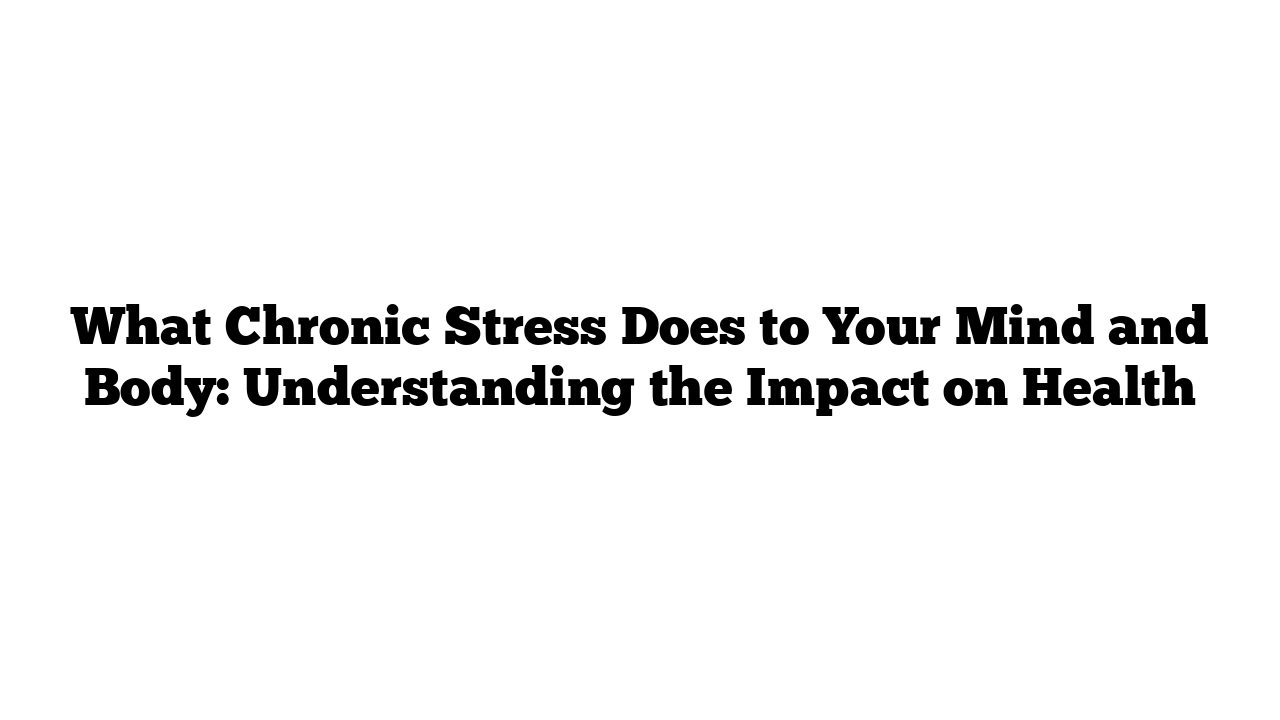Are you feeling tired, irritable, or often dealing with headaches? Perhaps you can’t sit still, catch colds frequently, or experience stubborn aches in your shoulders or back? If these symptoms resonate with you, it’s possible you’re dealing with stress. According to the World Health Organization, stress is a state of worry or mental tension caused by difficult situations. But how can this mental strain affect your body and health?
The Role of Hormones in Stress Response
When it comes to stress, one hormone is central to the conversation: cortisol. Your body releases cortisol when the hypothalamus-pituitary-adrenal (HPA) axis is activated. Here’s how it works:
- Fight or Flight Response: When you face stress, whether it’s a looming deadline or a genuine threat, your nervous system kicks into gear, triggering the fight-or-flight response. The adrenal glands release adrenaline, giving you an immediate energy boost.
- Cortisol Release Mechanism: If the stress continues, the amygdala (the part of your brain that senses danger) signals the hypothalamus. This initiates a cascade of hormonal signals: the hypothalamus releases CRH (corticotropin-releasing hormone), prompting the pituitary gland to release ACTH (adrenocorticotropic hormone). This hormone travels to the adrenal glands, stimulating them to release cortisol into the bloodstream.
Cortisol isn’t only released during stressful times; it can also result from over-exercising or pushing your limits too far.
Cortisol’s Impact on the Body
Cortisol works alongside adrenaline to create a stress response that affects nearly every organ in your body. Here’s how it functions:
- Increased Energy: Cortisol elevates blood pressure to ensure adequate oxygen supply and makes glucose and fats available for energy. This extra energy can help you meet deadlines and tackle challenges.
- Immune System Function: While cortisol can boost the immune system during acute stress, chronic stress can lead to negative outcomes. You need cortisol for many bodily functions, but an overabundance can disrupt normal physiological processes.
The Balancing Act of Cortisol
While cortisol is essential, balance is crucial. Short bursts of stress can be beneficial, providing the necessary energy to complete tasks. However, chronic stressors—such as war, unemployment, or grief—can lead to sustained cortisol production, disrupting normal body functions.
- Insulin and Blood Sugar Levels: Elevated cortisol levels can interfere with insulin’s effectiveness, resulting in higher blood sugar levels. Over time, this disruption can contribute to insulin resistance and increase the risk of Type 2 diabetes.
- Weight Gain: Chronic stress may also influence how your body stores fat. Research indicates a correlation between high cortisol levels and obesity. A population-based study found that higher hair cortisol levels were associated with increased instances of obesity.
Eating Habits and Immune Function
Cortisol can also affect your eating patterns:
- Comfort Food Cravings: Under stress, you might find yourself reaching for comfort foods. Cortisol influences insulin levels, causing blood sugar to drop and leading to cravings for high-calorie, sugary foods.
- Fat Accumulation: Elevated cortisol levels are linked to increased abdominal fat, often referred to as visceral fat, which is associated with various health risks.
Furthermore, stress can weaken your immune response:
- Weakened Immunity: Chronic cortisol elevation prevents certain immune cells from effectively dividing and fighting pathogens, leaving you vulnerable to illnesses.
- Increased Inflammation: While inflammation is a natural defense mechanism, prolonged inflammation can hinder healing and lead to various diseases, including heart disease and diabetes.
Stress and Brain Function
Chronic stress has a direct impact on brain health. It can reshape how your brain functions:
- Memory and Learning: Long-term stress may cause the hippocampus, crucial for forming long-term memories, to shrink. This can impair memory and cognitive function.
- Mood Disorders: The combination of stress hormones and inflammation can affect mood, leading to anxiety, depression, and even cognitive decline. Dysregulated cortisol levels can also disrupt sleep, further affecting brain health and emotional well-being.
Coping Strategies for Managing Stress
So, what can you do about chronic stress? Here are some strategies to help manage your stress response:
- Engage in Physical Activity: Regular exercise has been shown to mitigate the effects of stress and lower cortisol levels.
- Practice Mindfulness and Relaxation: Techniques such as meditation, deep breathing, or simply taking time for activities you enjoy can help reduce stress.
- Stay Hydrated: Proper hydration supports overall health and can help combat stress.
- Seek Professional Help: A mental health specialist can provide guidance on changing your perspective on stressors and developing healthier coping mechanisms.
Remember, while stress is a part of life, persistent stress is not normal and shouldn’t be ignored. Learning to navigate and manage stress effectively can lead to a healthier, more balanced life.
Reference Links
- For further reading on stress management and health, visit medicaltimes.io.
